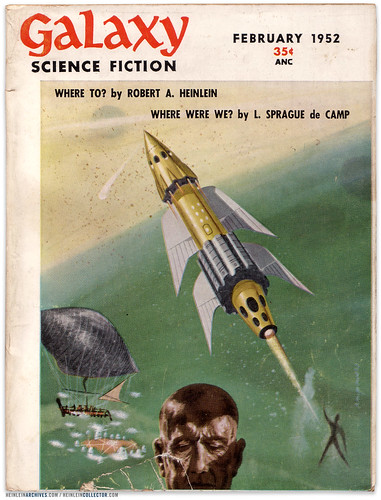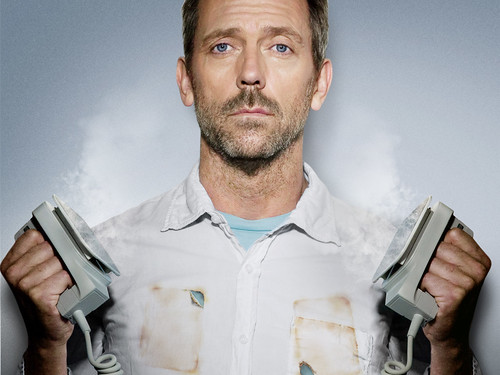
I saw Watchmen on opening night in Williston. Over the past couple of weeks, genre media has been talking much about this film. Advanced reviews, speculation, talk on forums and everything else has been booming, and much of this discussion has been focused on the comic's creator, Alan Moore, and his stance towards the film. Moore's attitude towards filming of his materials has been extremely negative, and for good reason; prior adaptations, such as League of Extraordinary Gentlemen, From Hell, Constantine and V for Vendetta have all been fairly poor adaptations (although V wasn't too bad, comparatively), and Moore has disavowed any part of the film process. It's an understandable thing, but I think that it is a bit misguided and arrogant. In reality, it really doesn't mean much. The film was made, and I for one largely enjoyed it.
Watchmen has been called the world's most celebrated comic of all time. It made Time Magazine's 100 best book list, and it's won numerous awards. It is a fantastic and compelling read. The movie, in my opinion, is a faithful adaptation, but will never gain the same status as the book. Rather, it plays out like an homage to the comic book, celebrating, rather than telling the story. I think, given the circumstances, this is probably the best that could have been hoped for. Watchmen, like most print stories, is a comic that is incredibly difficult to adapt to film. The sheer volume and density of the story makes it a challenge at best. The film is a good one, but it is almost too much like the comic book, to stand on its own as a movie.
Comic books are a huge thing for the movie industry. They have accounted for some of the biggest blockbuster hits in the past decade, and after Spiderman, studios realized that with the advances in computer imaging, there was an entire backlog of stories and characters that could be adapted for the big screen. And as such, we've seen a number of very good and very bad comic book movies, ranging from Spiderman 1-3, Iron Man, The Hulk, X-Men 1-3, Hellboy, Hellboy: The Golden Army, Batman Begins, The Dark Knight, Superman Returns, Fantastic Four, Fantastic Four 2, Sin City, and others. There's a number in the works, from Wonder Woman, Iron Man 2, Justice League, Green Lantern, and I'm sure many more.
Comics are both difficult and easy to adapt, based on the many differing results when it comes to quality. Films such as Batman Begins, Iron Man, Spiderman and Sin City have been absolutely fantastic to watch, while things like the Fantastic Four, Superman Returns, The Hulk and Spiderman 3 have largely been failures, although not necessarily at the box office.
Comic books provide a fantastic medium for stories. They are highly visual, and can pretty much accomplish anything that can be drawn upon a piece of paper (or now, a computer screen). In a way, they are an entire set of story boards for a film that allows a storyteller to tell a fantastic, visually stimulating story in a way that a novel really can't do. And comic books are extremely popular - it isn't all the Comic Book Guy from the Simpsons - there is a huge and growing audience for comic books.
Therefore, adapting a comic book for the silver screen presents some different challenges for screenwriters. They don't have to imagine how characters look and interact with one another - that element is already present on the pages. Obviously, because of this, and a large fanbase, there is much pressure on the part of the production team to get things looking right, just like in the comic.
This is really the case with Watchmen. It looks fantastic, and it positively oozes from the comic's pages. The characters largely look just as I imagined them (and I’m not really one to nitpick over some of the minor differences in costumes and appearance), but the team that worked on Watchmen did a fantastic job, getting the backgrounds right, shaping the overall look and feel of the comic. This is essentially how I imagined it would look.
Another film that I've really enjoyed did the same thing - Sin City. Frank Miller's comic was presented in a neo-noir style that was excellently replicated by the film team, who used CGI to get the colors (and lack of colors) to essentially match that of the comics. Sin City, I maintain, is not so much a movie, but a moving comic, one that has jumped from the pages to the screen almost seamlessly. The stories are largely intact, the same outrageous and ludicrous characters and situations, and it looks good.

But to what extent is a direct adaptation, or even a copy, a good thing for film
s? Critically, Sin City made a splash because of the unique nature of the comic books, and how that translated right over to the screen - it looked different. But other comic book films, such as Spiderman and Ironman, which enjoy very long lineages in the print world, had to be adapted to tell the origin stories of their title characters, and that worked excellently. Both were updated - Spiderman for 2000-era New York City, rather than the 1970s when the comic first came out (although, a period piece of Spiderman in the 1970s? That would be cool), and featured a far different story than what might have been featured in the comics originally. Ironman was updated from the Vietnam War origin to the current conflict in Afghanistan to give Tony Stark a start, which worked very well, and proves that a literal translation from page to screen really isn't necessary all the time for the story to work. Spiderman and Ironman are aided by having good scripts, where the writers seemed to understand the characters and the thematic elements of the stories. There are examples of where this hasn't really worked, such as Hellboy, where the production team went in a different direction from the stories of the comics, creating a fairly different entity. The comics are fantastic, and stand well on their own, but so does the movie, which is not nearly as good, but captures much of the feel, although not the story, of Hellboy.
Other films just fail utterly. Fantastic Four, the Hulk, Spiderman 3 and X-Men 3, all failed to really capture the essence of the characters and opted more for a CGI type of film that had a transparent storyline, weak characters and overblown effects. The translation process here essentially went for the glamour and exciting points of the films, but not their story core.
DC comics in particular are hard to translate, and the Batman franchise has had an extremely mixed history. The first major Batman film went more towards the darker story that really exemplifies the story, while later installments went for the visual elements. This has largely changed with the release of Batman Begins and the Dark Knight, where the creators fully understood the characters, but also how to make the film look good. Neither Batman Begins nor The Dark Knight are perfect films, but they do stand very well on their own, and are a good demonstration of a good adaptation.
Superman is a harder one to adapt, because of the nature of his story. I haven't seen the original Superman films, and intend to, but when I watch Superman Returns, I leave feeling very unsatisfied. Clearly, the production team liked the comic, and it looked very good, but the story was a rather poor one that was predictable, and didn't present the same depth as something like Batman Begins.
This, I think is true with Watchmen. The creators, essentially, were too in love with the story, and essentially focused on getting it perfect to the comic. While this is admirable, it is flawed because the comic really can't be adapted, not in its full nature, and when things are dropped from the story, there is no work done to try and tie together the remaining parts. While I'm not nearly as familiar with Watchmen as some, I did see that there were parts that had been eliminated, while other parts were kept in, that probably shouldn't have. The film moves fairly slowly, going from point A to point B at a pace that allows you to take in the story, but it is at times hard to keep the entire thing in perspective. Some parts were changed, such as the ending, to the point where I felt it worked better for the film, as it simplified and clarified things for the audience. While this certainly would get fanboys annoyed, it just goes to show that a movie generally needs to be simplified for a mainstream audience.
So, should comic books be adaptations as is the case with Ironman or Spiderman, or motion comics, such as Sin City and Watchmen? I think the answer lies somewhere in between. Film and comic books are both separate mediums, and because of that, there are far different expectations and differences in how they are presented. Screenwriters certainly did a good job changing the dialog in some of the movies based off of the older comics, because expectations have changed for modern audiences. Watchmen was a difficult story to carry over to a film, and I think that the few changes that they did make helped it along, while the rest is a couple hours of the Zack Snyder fanboying the film. The results are absolutely fantastic, and we have an adaptation that looks like the comic, but feels a little off as a movie. It's certainly something that I'll watch again, but with all the hype that this movie has brought on itself, it is a bit of a letdown. But then again, anyone expecting a perfect film out of Watchmen is quite a bit unrealistic.






















